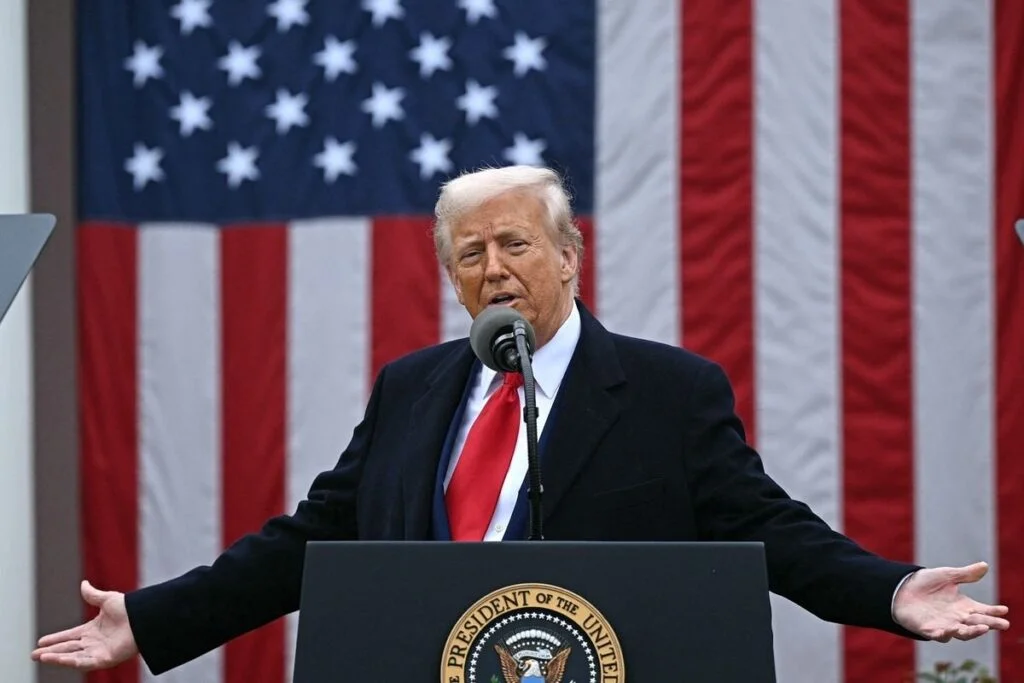Appreciating Government’s Negotiation Strategy Against Trump’s Tariff Policy

By: Dirandra Falguni)*
The 32 percent reciprocal tariff policy announced by US President Donald Trump on imported goods from more than 180 countries, including Indonesia, has again shaken the stability of global trade. Amidst this pressure, the Indonesian government chose not to act rashly. The government instead took a negotiation approach as a strategic step that was considered more constructive and promising in the long term.
banner 336×280
In an economic seminar held at Menara Mandiri Jakarta, Coordinating Minister for Economic Affairs Airlangga Hartarto emphasized that Indonesia chose the negotiation path because the United States remains a strategic partner. President Prabowo Subianto also fully supports this step, while emphasizing the importance of building a strong national economic strength that is not too dependent on other countries.
Airlangga also emphasized that the diplomatic approach has begun through intensive communication with US diplomatic representatives and national business associations such as KADIN and Apindo. The government is also preparing a concrete proposal to the US Trade Representative, with a focus on revitalizing the Trade and Investment Framework Agreement (TIFA) which has long been the basis for bilateral cooperation since 1996.
This step is considered appropriate, in line with President Prabowo’s direction for Indonesia to become an efficient, lean country, and not spoiled by external shocks. There is a possibility according to him that President Trump is helping Indonesia to become a developed country.
Finance Minister Sri Mulyani added that Indonesia’s export dependence on the US is not as large as other countries. Although America is Indonesia’s second largest trading partner, there are still many alternative potential export markets. This is a logical basis for Indonesia to diversify export destinations, including exploring opportunities in the ASEAN and BRICS regions.
Indonesia is not moving alone. Airlangga said that ASEAN countries will hold a regional meeting on April 10 to calibrate a common stance. This initiative shows that ASEAN as an economic community can be a resilient regional bloc facing global pressure.
Not only that, Indonesia’s membership in the New Development Bank (NDB) established by the BRICS countries is proof that Indonesia has an alternative axis to establish international economic cooperation. The visit of the Russian Deputy Prime Minister to Jakarta on April 14 also opened up promising new economic cooperation opportunities.
In response to the US’s high tariff policy, the government is not only relying on diplomacy, but also developing a coordinated economic strategy. The government is preparing a proposal for deregulation of Non-Tariff Measures (NTMs), including easing the Domestic Component Level (TKDN) policy in the information and communication technology sector. The goal is to maintain the competitiveness of Indonesian products in the international market.
The government is also considering increasing imports from the US in strategic sectors such as oil and gas (migas), as part of the negotiation strategy. In addition, fiscal and non-fiscal stimulus, including lowering import duties, VAT and import income tax, will be provided to maintain the balance of bilateral trade and support the strengthening of Indonesian exports.
According to data from the Ministry of Trade, Indonesia recorded a trade surplus with the US of US$14.34 billion in 2024, with the main contribution coming from the machinery and electrical equipment, clothing, and footwear sectors. In contrast, the US experienced a trade deficit of US$17.9 billion. This fact shows that Indonesia has quite strong bargaining power in the negotiation process.
Meanwhile, President Susilo Bambang Yudhoyono (SBY) also voiced his support for the government’s approach. He called the current negotiation and diplomacy strategy part of a dual track strategy, namely combining bilateral communication efforts with regional strengthening through ASEAN.
SBY considered this strategy very relevant amidst the complex global dynamics. SBY also reminded the importance of intervention by monetary and fiscal authorities in maintaining the stability of the rupiah exchange rate and the stock market so as not to get caught up in the free market turmoil. If left to the market mechanism alone, it could be that the value of our stocks and rupiah will be rewarded excessively.
In addition, SBY emphasized the importance of strengthening the fundamentals of the national economy, creating jobs, and maintaining fiscal health including debt control. According to him, a global crisis like this could be an opportunity to strengthen the competitiveness of domestic products.
Trump’s tariff policy has indeed triggered mixed reactions from US trading partner countries. Economic observer Anthony Budiawan from PEPS, the majority of countries chose the path of diplomacy rather than retaliation. Even large blocks such as the European Union have shown signs of softening and opening up room for negotiation.
This fact shows that the approach chosen by Indonesia is not a weakness, but rather a smart strategy that prioritizes stability and long-term interests. In an interconnected global economy, an aggressive approach can have an unwanted domino effect.
Amid global uncertainty and the threat of high tariffs from the US, Indonesia is taking a moderate but strategic path through coordinated and comprehensive economic diplomacy. With a combination of strengthening the domestic economy, diversifying exports, regional alliances, and a measured fiscal strategy, Indonesia is not only surviving, but also taking a proactive position in responding to global challenges.
The negotiation approach does not mean submission, but rather a form of diplomatic intelligence to maintain national economic stability while strengthening the foundation of an independent and highly competitive economy. In the ever-changing global trade landscape, this step is a symbol of a mature and future-oriented foreign and economic policy.
)* Contributor to Beritakapuas.com
